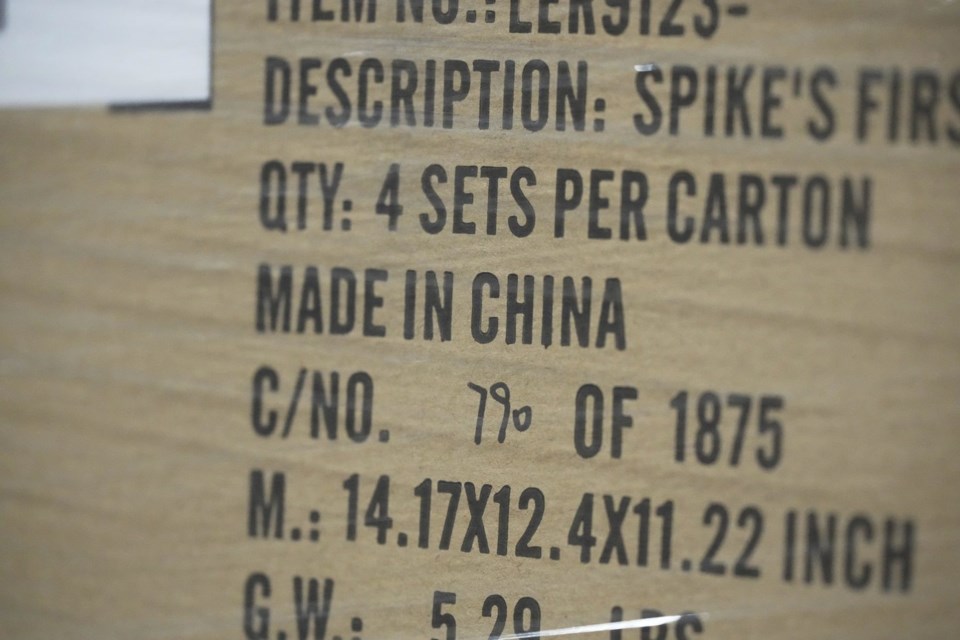TAIPEI, Taiwan (AP) — China appointed a new trade negotiator Wednesday in the midst of its tariff fight with the U.S.
The government said Li Chenggang replaces Wang Shouwen, who participated in negotiations for the 2020 trade deal between the China and the U.S.
The world’s two largest economies have been steadily increasing tariffs on each other’s goods. China faces 145% taxes on exports to the U.S., while dozens of other countries were given a 90-day reprieve for most duties.
Earlier on Wednesday, China announced its economy expanded at a 5.4% annual pace in January-March, supported by strong exports. Analysts are forecasting that the world’s second largest economy will slow significantly in coming months, however, as tariffs on U.S. imports from China take effect.
Exports were a strong factor in China’s 5% annual growth rate in 2024, and the official target for this year is also about 5%.
Beijing has hit back at the U.S. with 125% tariffs on American exports, while also stressing its determination to keep its own markets open to trade and investment.
In the near term, the tariffs will put pressure on China’s economy, but they won’t derail long-run growth, Sheng Laiyun, a spokesperson for the National Bureau of Statistics, told reporters earlier.
It wasn't clear why China was changing negotiators but the move comes as Chinese officials say the country has multiple options to respond to U.S. actions, including relying more on its own vast market of 1.4 billion consumers, and on Europe and countries in the global south. But as China’s domestic consumption continues to languish, it will be difficult to replace the U.S. consumer.
China also imposed more export controls on rare earths, which include materials used in high-tech products, aerospace manufacturing and the defense sector.
Prior to his new appointment, Li spent about 4 1/2 years as China's ambassador to the World Trade Organization, the body that governs global commerce and to which Beijing has appealed in its tariff dispute with the U.S.
He was also deputy permanent representative to the Chinese delegation to the U.N. office in Geneva and other international organizations in Switzerland.
Perhaps more so than his predecessor Wang, Li's experience at the Commerce Ministry and his participation in negotiating China's accession to the WTO more than 20 years ago stand him in good steed as China continues to refuse to cave in to U.S. demands, said Tu Xinquan, director of the China Institute for WTO Studies at the University of International Business and Economics.
Still, a bevy of higher-ranking leaders from President Xi Jinping on down is likely to chart the course, with Li representing their case in any talks with the U.S., Tu said, adding that Li is considered pro-free trade.
"There might be another style of negotiations. Li Chenggang is an open-minded person and supports free trade,” Tu said.
Xi, meanwhile, was making the case for China as a source of “stability and certainty” in global free trade as he tours Southeast Asia this week — implying that China is a more reliable trade partner than the U.S.
After first visiting Vietnam, he arrived in Kuala Lumpur, Malaysia’s capital, later Tuesday, for a three-day visit and will end his tour with a stop in Cambodia. In Malaysia, Xi is expected to discuss a free trade agreement between China and 10-member Association of Southeast Asian Nation, one of several funds and agreements China has led as a means of sidestepping organizations and mechanisms dominated by the U.S. and the West.
Asked about the possibility of talks with the U.S., Chinese Foreign Ministry spokesperson Lin Jian said the U.S. had begun the tariff spat and China was only “taking necessary countermeasures to defend its legitimate rights and interests and international fairness and justice.”
“If the U.S. truly wants to resolve the issue through dialogue and negotiation, it should stop using maximum pressure and stop threats and blackmail. For any dialogue to happen, it must be based on equality, respect and mutual benefit," Lin said at a daily briefing.
Christopher Bodeen, The Associated Press



